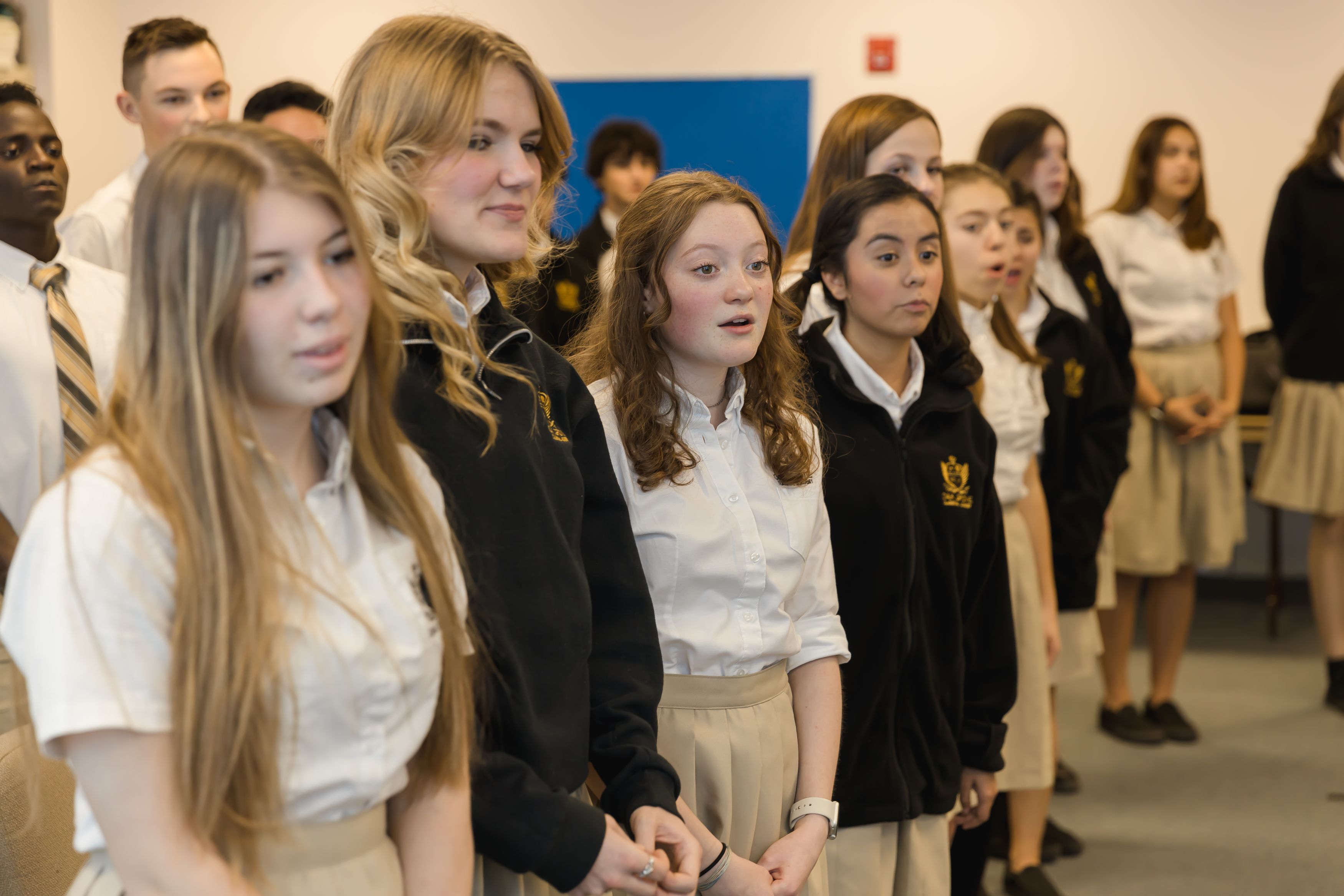
Classical education is the cultivation of wisdom and virtue by nourishing the soul on truth, goodness, and beauty.
Classical
For centuries, a classical philosophy of education has informed the education of children and inspired them to think and learn for themselves. The founders of this republic and its great thinkers were educated under the influence of classical education. Only in the past century did the mainstream of educators in Western civilization depart from this vision. We teach the tools of learning so that students can approach anything with confidence because they have been trained by the Truth. We use a biblical framework as the foundation for all that we do, pointing to God’s truth and His beauty in every subject we teach. And while diligent practice and discipline is par for the course, we model for our students the ancient beauty of scholé – restful learning that produces and cultivates virtue.
The Classical Model uses the Trivium (Latin for “three ways"), to capitalize on age-appropriate strengths of students at each of the three primary stages of development: Grammar, Logic, and Rhetoric. By structuring our curriculum around the Trivium, we focus on critical thinking skills, the classic languages (like Latin) and a defined body of content knowledge. This plays out practically in different ways along a student's journey at Oak Grove

Grammar/Knowledge Stage (Pre K-5th)
The Grammar stage, (elementary school level) builds a foundation for students to become lifetime learners. Students grasp the basic building blocks of learning by applying meaningful memorization and mastery of content knowledge. Focus is placed on delivery of factual information through poetry, vocabulary, mathematics, literature, geography and historical narrative. Songs, chants, poetry, stories and rhymes incorporate beauty and wonder while aiding students in becoming proficient in the memorization of material.

Logic/Understanding Stage (6th-8th)
In the Logic stage, (mid-school level) students are taught how to argue with wisdom and eloquence. In the classroom, they critically analyze more complex issues, applying the difficult “why” and “how” questions to each subject area. Through their study of formal logic, they develop reasoning skills, recognize and avoid invalid conclusions, and construct persuasive arguments.

Rhetoric/Wisdom Stage (9th-12th)
After asking the why, how and what of subjects, students at the Rhetoric stage, (high school level) have become independent thinkers. Guided by teachers, students practice making the connections between bodies of knowledge and building the power of persuasion within the world of ideas. They study the art of persuasive speaking, learning how to defend with passion and eloquence what they now know. Based on the knowledge and reasoning skills developed through the grammar and logic stages, students culminate their academic experience by applying the art of both written and spoken presentation in our Senior Thesis event.
Classical Education Resources:
Ebook and Print Resources:
• The following free ebook is essential reading on classical and Christian education: An Introduction to Classical Education By Christopher A. Perrin
• Wisdom and Eloquence by Evans and Littlejohn
• Norms and Nobility by David Hicks
Circe Institute Resources on Classical Education:
- Classical Education Defined
- The Classical Difference
- Teaching Classically
- Elements of Classical Curriculum and Content
